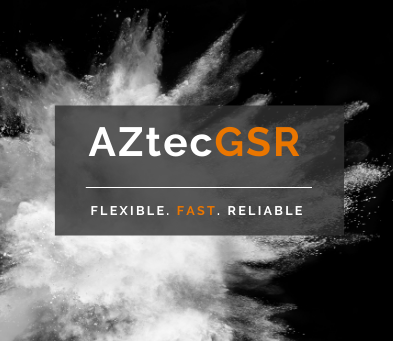AZtecGSR
AZtecGSR automates the analysis of Gunshot Residue Analysis in the SEM to provide fast, accurate and reproducible results to ASTM E1588 - 16 & 17.

Gunshot Residue (GSR) is a key piece of forensic evidence that is often critical to ensuring justice in some of the most serious crimes. AZtecGSR provides fast, accurate, and easy to use SEM-based GSR analysis for the forensic analyst.
AZtecGSR provides analysts with:

AZtecGSR is a dedicated tool for the detection and analysis of gunshot residue (GSR) particles in the SEM. AZtecGSR is a tailored version of the AZtecFeature particle analysis platform, sitting within the AZtecLive NanoAnalysis suite, and which is fully optimised for GSR analysis including classification and reporting to the 2016, 2017, 2020 and 2025 versions of ASTM-E1588 standard.
Designed for analysis according to industry best practice guidelines, AZtecGSR uses a workflow-based approach to guide both expert and novice users through GSR analysis, with in-interface instructions to provide additional guidance. It also includes a series of advanced functionalities designed to assist in dealing with the very small particles that are often found in GSR analysis, as well as approaches for improving throughput and efficiently running a large number of samples.
AZtecGSR uses Oxford Instruments’ Ultim Max Infinity or Xplore EDS detectors in combination with AZtecLive’s TruQ-IQ algorithms to ensure accurate element identification and quantification, even at the highest levels of throughput.

AZtecGSR automates the analysis of Gunshot Residue Analysis in the SEM to provide fast, accurate and reproducible results to ASTM E1588 - 16 & 17.
This four page application note illustrates how Gunshot Residue Analysis is performed in AZtec.
The combination of Ultim® Extreme and AZtecGSR enables the automated detection of particles containing light elements such as boron at very short acquisition times.
This video shows the ease of use of AZtecGSR, explaining the workflow that is followed from initial setup to a complete large area analysis